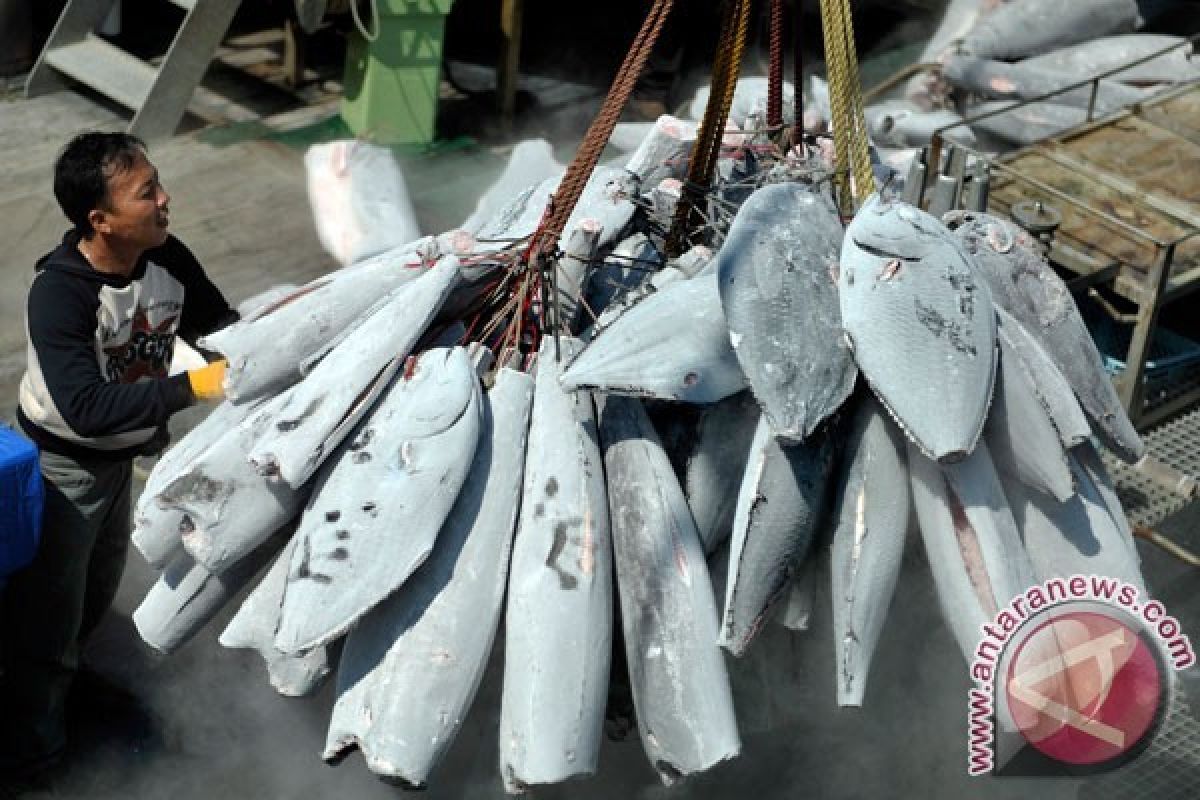The Maritime Affairs and Fisheries Ministry (KKP), along with a number of partners, has successfully established fish consumption promotion forums (Forikan) in 34 provinces in order to increase national fish consumption rate.Jakarta (ANTARA News) - The government of Indonesia, which is an island country rich in various fish resources, continues to promote its fish consumption program as part of its efforts to build the nations healthy and smart human resources.
The government has set up forums in different levels from the central government to regional administrations in provinces, districts, municipalities, and sub-districts as a means of implementing the program to promote fish consumption.
The Maritime Affairs and Fisheries Ministry (KKP), along with a number of partners, has successfully established fish consumption promotion forums (Forikan) in 34 provinces in order to increase national fish consumption rate.
"In addition to the national level, Forikan forums are also formed at the provincial, district, municipality, and sub-district levels," Director General for Improvement of Maritime and Fisheries Product Competitiveness, Nilanto Perbowo, said at a National Coordination Meeting of the KKP in Jakarta on Thursday (April 6).
Until now, Forikan forums have been established in 34 provinces, 228 districts/municipalities, and 113 sub-districts.
According to Nilanto, the implementation of fish consumption program is not only the duty of the KKP as the technical institution but also the duty of all public institutions.
To that end, steps to popularize fish consumption require a strategy, coordination, and harmonization involving the entire nation, he said.
"One of the efforts to synergize the implementation of GEMARIKAN movement (community fish consumption movement) program is through the establishment of Forikan forums," he noted.
The implementation of the GEMARIKAN program is expected to, among others, raise public participation to increase fish consumption and explore methods and materials for campaigns/promotions to increase fish consumption.
Besides, he added, the KKP is also making use of social media to campaign and increase consumption of fish and introduce fish that are native to Indonesia to the public.
Earlier, Minister of Maritime Affairs and Fisheries Susi Pudjiastuti pointed out in a number of occasions that fish can replace beef because, in addition to supporting the economy of the nation, it was healthier too.
Unlike mad cow disease in beef and bird flu in fowls, fishes do not spread any disease that could endanger the health of the consumers. The fat content in fish does not pose a significant problem too. Fish is classified under the white group of meat, which has a positive impact on health.
"I advise the people of Indonesia to increase consumption of fish," Susi stated.
According to her, consuming more fish will further stimulate the growth of children, resulting in a more globally competitive generation.
Consuming fish can also reduce the mortality rate among mothers and babies during labor. People must be encouraged to consume fish as it would improve their overall health and nutritional intake.
The government encourages people to increase their fish consumption, because it contains a high level of protein. Also, it is cheaper when compared to beef.
Human brain cells need high supply of protein, particularly newly born infants. The development of brain cells can be boosted by consuming fish.
About 65 percent of the protein needs could be supplied by fish. Meeting nutritional needs is a serious problem, which is apparent by the fact that the average height of the people in the Southeast Asian Nations (ASEAN) is 174 centimeters, while that of Indonesians is only about 158 centimeters.
The average IQ level of the ASEAN people is 93, while that of Indonesians is only 89. This problem must be overcome, and the situation should be improved by increasing fish consumption.
Thus, the government is concerned to increase fish consumption among the people as fishes are more advantageous when compared to other types of meat.
The minister reminded that the price of beef was also relatively high, and so it would be more beneficial for residents to buy fish. She also warned that the level of fish consumption in Indonesia was still about 40 kilograms per capita per year.
That number, she added, is still considered low when compared to the consumption levels of Japanese society that has reached up to about 80 kilograms per capita per year.
Based on the report of the KKP, peoples fish consumption was only about 41.11 kg per capita per year in 2015.
In fact, Indonesias per capita fish consumption has increased, compared to 29.08 kilograms in 2009 and 30.47 kilograms per annum recorded in 2010.
With the setting up of promotion forums almost in all regions, the government hopes that the fish consumption level of the people would increase.
After all, Indonesian people are fond of exploring culinary delicacies and love to sample the treats at different food stalls, eateries, or restaurants. Seafood and fish are included among the culinary delicacies on any menu. Luckily, Indonesia is an island country with vast seas and abundant fish resources.
There was a time when the former fisheries product processing and marketing director general of the KKP, Saut Hutagalung, loved to propagate this slogan Eat Fish for Building Intelligence, Health, and Strength.
But has Sauts slogan encouraged them to go out on a food hunt or to consume fish? Consuming fish enables consumers to pamper the taste buds while maintaining good health too.(*)
Reporter: Andi Abdussalam
Editor: Heru Purwanto
Copyright © ANTARA 2017












